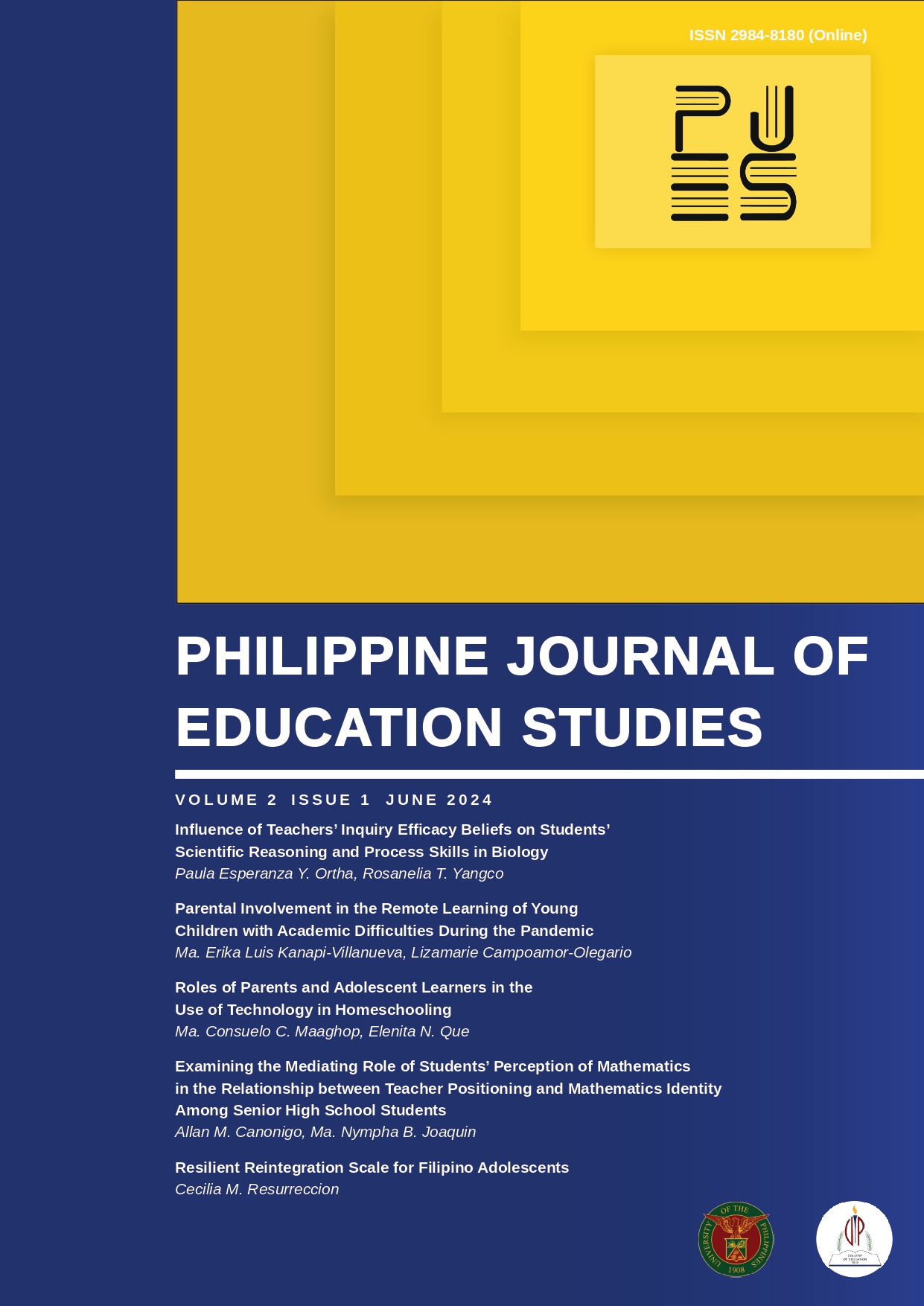Parental Involvement in the Remote Learning of Young Children with Academic Difficulties During the Pandemic
Abstract
The COVID-19 pandemic caused physical schools to close, leading to a sudden shift to remote learning. This transition posed a significant challenge, as the course designs and strategies were initially designed for face-to-face settings. Despite efforts to provide quality education to all students during the pandemic, children with academic difficulties faced limited support. As a result, the responsibility for teaching fell on the parents and other family members, as students were bound to stay at home. Thus, the purpose of this case study is to describe the roles, experiences, and challenges of the nine parents of children with academic difficulties while engaging in their child’s remote learning during the sudden shift. Semi-structured interviews, online class observations, and focus group discussions were conducted via videoconferencing. The data gathered during the lockdown were thematically analyzed. The findings of this study revealed five primary types of parental involvement within this setting: (1) providing for their child’s needs, (2) organizing space and time, (3) motivating and monitoring the child’s behavior, (4) instructing technology and lesson-related problems and (5) adapting the lessons. Despite the challenges, parents have gone above and beyond to provide their children with the necessary resources and support for remote learning. This study also suggests relevant implications and recommendations for educators and policymakers.


